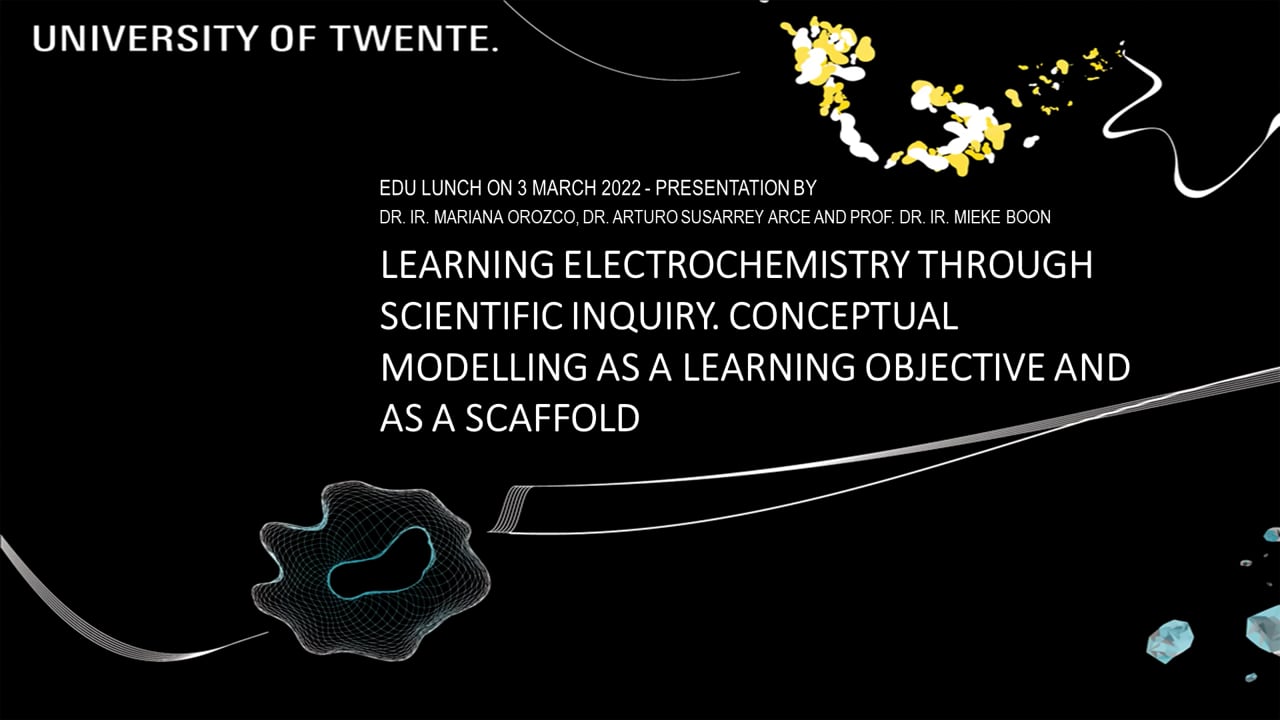Project introduction and background information
This project concerns an innovative Electrochemistry course, part of a Chemical Science Engineering programme (CSE), in particular in Modules 4 and 5.
Teachers have observed that their students’ understanding of electrochemical concepts and phenomena is often insufficient to, for example, attempt further connections to concepts of Thermodynamics, and to generate new knowledge in scientific problem-solving. Also, students often seem to be more concerned with getting a sufficient grade (surface learning), than with developing into academically thinking professionals (deep learning). Therefore, a new course was required that would (a) contribute to students’ building deep insight into electrochemical phenomena and (b) promote their mastery of electrochemical concepts, both in and beyond the learning context.
Teachers and researchers joined efforts to design a new course, tapping on ideas of inquiry-based learning, and guided by the use of Conceptual Modelling (CM) as a scaffold to learning. The particular pedagogical intervention departs from the consideration that CM is an essential reasoning ability of (engineering) scientists and, consistently, it constitutes a key learning objective of this course.
Concurrent with the ongoing implementation of this course, empirical research is set up in Modules 4 and 5 to grasp how students learn electrochemistry with this novel pedagogical approach, and whether (and to what extent) there is any observable effect on the learning and transfer of electrochemical concepts. Both the instructional design of the course and the educational research design integrate considerations from Chemical Science, Philosophy of Science in Practice, and Education Sciences.
This action research project is expected to contribute substantially to engineering education and to educational research. Next to the research methods and findings, the implications will be thoroughly discussed.
In the video below you can find the recording of the EDU lunch at 22/03

